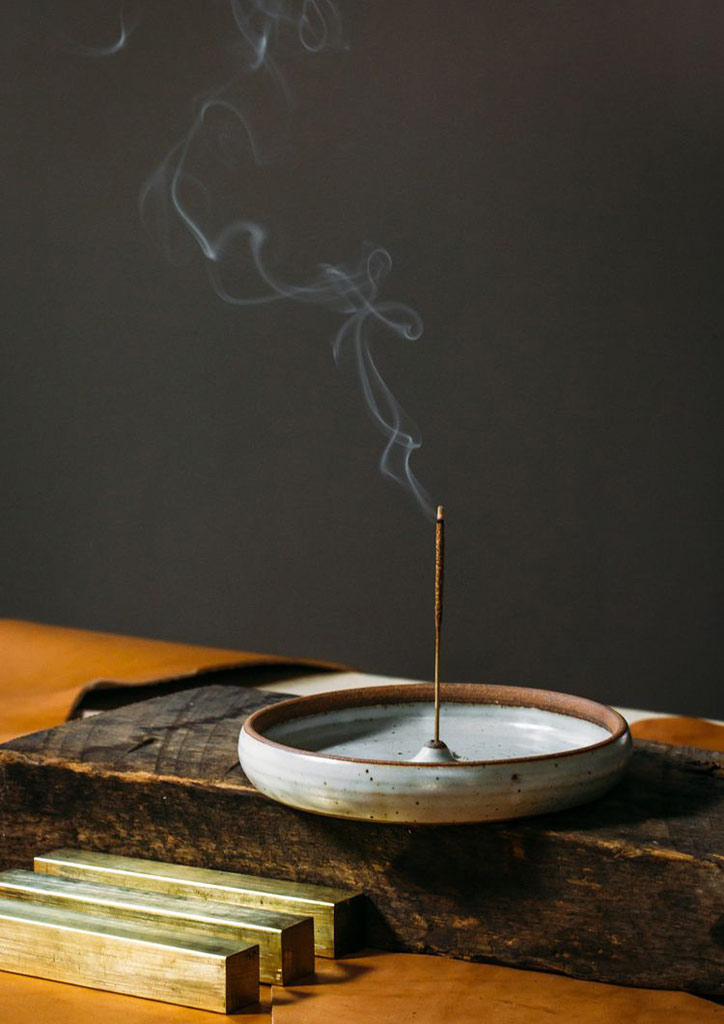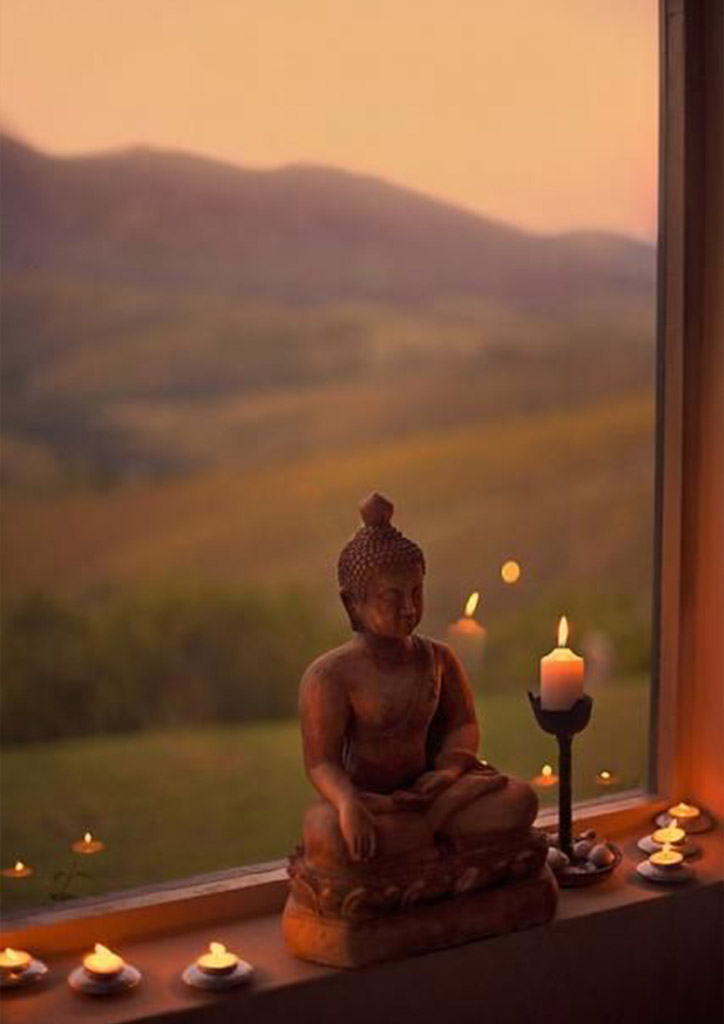
Feng Shui Expert Tips for Hungry Ghost Month (Part 1)
History affirms the rich culture of the Chinese people as one of the world’s oldest cultures, originating thousands of years ago. The Chinese are known to be good merchants, reaching all corners of globe, and they keep their culture alive wherever they go. In the Philippines, history tells us that the Chinese settled in the country well before the start of western colonization. This has resulted in intercultural marriages, paving the way for a more diverse understanding of Feng Shui. However, some misconceptions have developed throughout the generations. In this mini-series, BluPrint is joined by interior design correspondent, IDr. Gian Carlo Daus for an awakening session with Mr. Paul Ang wherein he presents Feng Shui in a different light.
Mr. Paul Ang has been studying the subject matter since 2008. At first, he was skeptical about it then he became curious about it. So, in 2008, he had the chance to study Feng Shui more through a contact referral from an architect friend. His journey on acquiring such knowledge started in Malaysia under the mastership of Lillian Too. Afterwards, he still had some questions on his mind which eventually led him to study again. This time, it was under his second master, Raymond Lo in Hong Kong where he extensively learned about Feng Shui and Astrology.
As a person who really loves to study, he took further education under his third master, Joey Yap in Singapore, who is famous for technological advancements in terms of Astrology and Metaphysics. Now, he considers himself as a student from three different masters. Currently, even with all the knowledge he has gained, he is not accepting consultancy but rather he is part of a research team that wants to dig more into the subject matter and the head of their team is Johnson Chua. Paul emphasizes that he wanted to learn not to be a consultant but for his own personal practice.

BP: Let’s lay the right foundation first. What is Feng Shui? What is the Hungry Ghost Month? Are they related to one another?
PA: Feng Shui is really Metaphysics and it’s actually only a part of a formula. It started with a man named Fu Xi. He was the man to whom the last manuscripts of teachings of Feng Shui were given. Feng means “wind” and Shui means” water”. Its basic formula states that the dragon releases the energy and stops at the boundary of water. The dragon means mountain and the one keeping the energy.
So, in terms of the environment, we have to have our mountain, for the mountain releases Qi, or the life force, that dissipates at the boundary of water. Water speaks of rivers or seas, today, it can be related to roads as it’s heavily used by cars. As long as there are mountains and water, civilizations will prosper. Good examples of auspicious locations are Hong Kong and Singapore. During the early times, it was only applied in tombs of emperors. In such case of water being present in the burial site, proper burial based on Feng Shui suggests that the head of the deceased should not lay perpendicular to the water area as this doesn’t invite the good Qi towards the society.
One area of Feng Shui that’s always been sought out by the construction industry is the date selection – to always choose a good date to ground break and end the construction. Again, like any other thing, Feng Shui changes in time, and nothing is permanent.
PA: Feng Shui and Hungry Ghost Month are two different things. Feng Shui is a branch of Quantum Science that deals with unseen influences or energies from our environment to humans. On the other hand, the practice of the Hungry Ghost Month is mainly a cultural tradition. However, in astrology, August is the month of the monkey, which often has metal-related accidents. This coincides with the Ghost Month, making this a time to be particularly vigilant.
PA: The other term, Hungry Ghost Month, comes from the traditional Daoist belief of Yama, the god of death punishing the hungry ghosts. During this month, it is believed that the gates of hell are opened up and the hungry ghosts are free to roam around the earth where they seek food and entertainment. Again, it started as folklore and eventually became an urban legend.
BP: August is the month where the tradition of Hungry Ghost Month is observed. Are there any specific recommendations, like the dos and don’ts for this month?
PA: We usually avoid night parties, walking alone outside in the dark or going out, or hanging clothes at night not to be exposed to the roaming ghosts. Wearing black or red during nighttime is also a no-no as the ghosts can quickly see you. Another is that when someone calls you from behind, do turn with your whole body because if it’s only your head that you turn, it is believed the ghost will reside on the other side. But above it all, there’s pretty much a lot of things you can do inside your homes, without “disturbing” the ghost.
BP: In terms of the construction industry, it has been a tradition to pause due to beliefs of bad luck. What is your take on this?
PA: In Feng Shui, the month of August is the monkey month which means that it is prone to danger and injuries. Possibly, this is where the “pausing” mindset came from. Technically, there’s no need to stop the construction as long as no one is residing within the construction site. The most likely to be affected would be house renovations, especially when owners are still living within the house that’s being renovated.
We also have to debunk the idea of stopping “hammer-striking” when no one’s living within the construction site; there’s no issue with that. Lastly, it’s desirable to start the construction with a good date. And to precisely know your good date, it’s better to consult a trusted expert.
BP: Since we are still experiencing the pandemic, what are the good Qis to improve our lives this season?
PA: In this pandemic, it is important to keep a positive mind, and also to avoid being “toxic positive” as well. At home, we can place metals or salt with water in the North and Southeast corners to avoid attracting the Covid-19 virus for this year 2021. Also, as good news to the “plant-titas” out there, plants are good in general. Plants provide oxygen which our body needs. Thorny plants like Cactus or Bougainvillea are usually placed outside to prick the negative energy before it enters your house.
BP: What’s the biggest misconception about Feng Shui? What about Religion and Feng Shui?
PA: The biggest misconception of Feng Shui is that people think it’s magic. It is not magic. It is not an instant thing. Life is still a matter of choices. Spirituality is different from religion, and religion is different from Feng Shui. As we have said, Feng Shui is Metaphysics. It doesn’t endorse any religious practice of worshipping someone, it deals with energies around us.

This floor plan is an example of Xuan Kong flying stars yearly (progressive) stars, represented by numbers 1-9.
For example: For the year 2021 the star 2 flies to north corner of a property, star 2 is the sickness energy since it’s still untimely qi. Timeliness of stars changes every 20 years. The star 5 flies to the Southeast for the year 2021. Star 5 is the unluckiest energy of all. It evades good health and wealth.
These stars 2 and 5 is weakened by salt water or metal objects. So it is advised to place such objects in these locations to “weaken” the bad energy.
In some cases, these stars do good, because the space is configured either accidentally by karma, or done by an advanced fengshui consultant. In this case, there’s no need to “weaken” the stars.
For Part 2 of this mini-series article, we will tackle more on how Feng Shui can help enhance the way spaces are designed, for both practicality and amicable living conditions.












